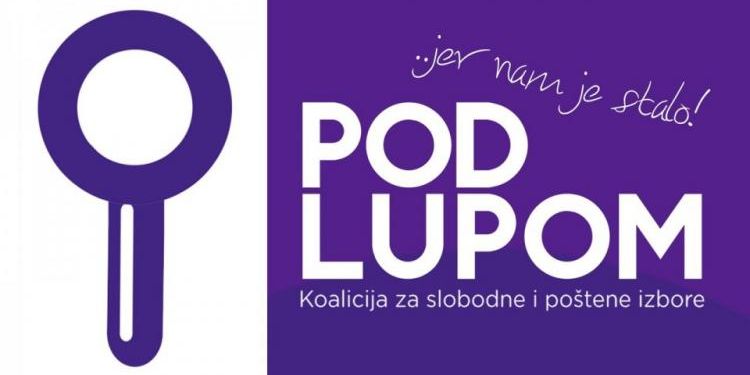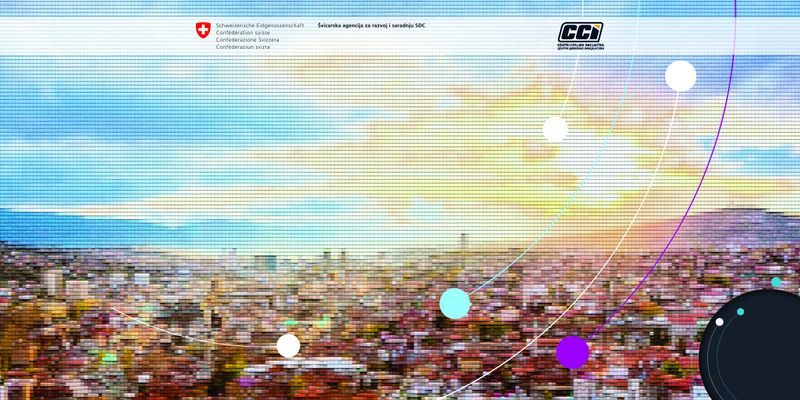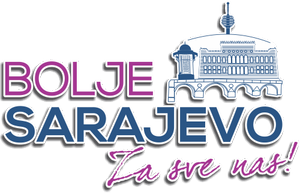
Reports on monitoring the performance of legislative and executive authorities in BiH for the first quarter 2018 presented by CCI At the end of February, after many missed deadlines and problems in functioning of the coordination mechanism, the job on the EU Questionnaire was complete.
It took the local authorities as many as 15 months to finalize what was to a large extent a technical job. The beginning of the year was marked by the migrants' crisis for which BiH authorities were not prepared. The Election Law is still in focus of political bickering, however, no solution is yet to be seen. Non-adoption of the amendments to the Law on Criminal Procedure is an example of the lack of responsibility in local politicians' behaviour.
Another thing that the Federation authorities faced in this year was the relationships crisis within the ruling coalition. The end of January even saw a full blockade of the work of the Parliament and very serious problems in functioning of the Government. Only five laws were adopted in the first three months by the Parliament. The reform processes the final result of which should be improvement of quality of citizens' lives were significantly slowed down. The work of the authorities in BiH Federation over the observed period leaves an impression that neither the implementation of programs nor meetings nor the work results nor the Reform Agenda mattered. An impression prevailed that the authorities cared only about the parties' interests and the pre-election campaign, which is well under way.
In the Republika Srpska in the first quarter 2018 the work of the Parliament was much more efficient compared to their Federal colleagues. The results of work of the National Assembly, besides the fierce clashes between the representatives of the ruling majority and the opposition, are characterized by the stability owing to the majority. The National Assembly held 17 meetings and discussed 45 measures, 16 bills among them.
Summary reports in English are available from the following links:
BiH Parliamentary Assembly and the Council of Ministers.
BiH Federation Parliament and Government .
The Republika Srpska National Assembly and Government.
These activities are implemented by CCI as part of the project Civil Society Sustainability program supported by USAID.

Two recommendations of the Coalition “Pod lupom” aimed at improvement of the election process accepted.
BiH Central Election Commission adopted two recommendations of the “Pod lupom” Coalition aimed at improved election process in BIH. The first one related to publishing the names of all members of polling boards after their nomination for the poling board and on the election day in order to prevent exchange of posts and potential trade of posts on polling boards. The other recommendation concerned the reduction of the height of the polling booths at the polling stations.
The work of the Coalition “Pod lupom” is implemented within the project BASE – Building Accountability and System in Elections, supported by the Delegation of the European Union in BiH.



With the program of training for greenhouse production, reach the goal of reduction of unemployment in the Semberija area. 43 project beneficiaries gain new skills.
43 beneficiaries of the project „Strengthening the Integral Agricultural Production for Decreasing Unemployment and Substitution of Import in Processing Industry“ successfully passed the training according to the publicly validated adult education curriculum prescribed by the Ministry of Agriculture, Forestry and Water Management of the Republika Srpska. The candidates attended the training in Adult Education Institution „Dositej“ in Bijeljina which is also a project partner. Lectures were organized three times a week. During theoretical instruction the candidates received specific knowledge about gardening with a special emphasis on growing red pepper and production of seedlings. Upon the end of theoretical instruction, the candidates attended the practical part on agricultural plots, which helped them master the process of preparation and processing of soil, methods of growing, selection and preparation of the substrate, application of fertilizers, selection of quality seedling material, as well as the basic principles of sowing and planting in vegetable production.
The program beneficiaries have already started applying their knowledge in practice. All the project beneficiaries were distributed the planting material in mid-May. Before that, according to the instructions of the agricultural experts, the plots had been prepared where, on 12 hectares, over 660.000 seedlings of the red pepper were planted. A consultant in agricultural profession was also hired on the project; he has a consulting role and assists the farmers to apply contemporary and correct agricultural-technical measures that should enable higher yield. The farmers are expected to deliver to „Sava“ about 500 tons of red pepper by autumn.
Semberija has the ideal conditions for production of the red pepper and our aim with this project was to connect the farmers and the industrial capacities and thus contribute to an increase of employment and the degree of usage of domestic resources and capacities. This project ensures the best possible cooperation between the local farmers and processors.
In addition to CCI, as a leading implementer, other entities that participate in the project as partners include the City of Bijeljina, RS Employment Bureau – Bijeljina branch, ‘Sava Semberija’ and Adult Education Institution ‘Dositej’. The goal of the project is to decrease unemployment in the territory of Bijeljina, i.e. increase competitiveness of local farmers and processors of red peppers, which is a part of the wider program „Support to Local Partnerships for Employment in BiH“, financed by the European Union and implemented by the International Labour Organization. The city of Bijeljina recognized the value of the project „Strengthening Integral Agricultural Production for Decreasing Unemployment and Substitution of Import in Processing Industry“ and co-finances the projects from its own resources.


How is the implementation of the Reform Agenda in BiH going? Which are the effects of the reforms in terms of social-economic indicators? The answers are provided in the sixth report of the „State of the Nation“.
At the beginning of April 2018, the sixth report in a series of reports „State of the Nation“ was published. This report offered a precise analysis of the implementation of the reform agenda, social-economic indicators that showed the effectiveness of the reform agenda in real life, and an overview of the European Union integrations of Bosnia and Herzegovina. This report was presented at the press conference that was attended by more than 10 media houses and a few guests. The report „State of the Nation 6“ received exceptional attention in the media space with over 70 media announcements; it also triggered a debate among socially engaged actors and brought into question the general effectiveness of the implementation of the reform agenda.
The report „State of the Nation“ in English can be downloaded from http://www.posaonarodu.ba/monitoring-izvjestaji/state-of-the-nation-6/1248
Wishing to influence the formulation of the political platforms at this pre-election time, the project team held meetings with the representatives of political parties in which the main findings contained in the Report „State of the Nation 6“ were presented, as well as other relevant data and findings. In these meetings the project team received feedback that will be used to improve the reports and all other activities on this project. In discussion with the representatives of the parties (SDS, DF, PDP, Naša Stranka, SBiH, HDZ 1990, SBB) it was confirmed that the data elaborated by our team would be used in preparation of the political programs. Unfortunately, some of the ruling parties (SDA, SDP, HDZ, SNSD) refused the meetings for unclear reasons.
The Project „Strengthening the Responsibility of the Authorities in BiH for Implementation of Reforms“ has been implemented by CCI since 2017, with the support of the Embassy of the Kingdom of the Netherlands in BiH. The goal of the project is to contribute to the efficiency of the implementation of the second phase of the Reform Agenda and to acceleration of European Union integrations, as well as to the development of image and legitimacy of CSOs in advocating solving of BH citizens' problems. All major information about the campaign „Job to the People“ is available from the website www.posaonarodu.ba



Draft Law on Local Self-Governance of Canton Sarajevo sent for public hearing. CCI actively participated in the work of the Working Group, as technical support for the Justice Ministry and the administration of Canton Sarajevo, on preparation of the new legal solution. This law is of great importance for the citizens of this Canton as it,
among others, governs the issues of transfer of responsibilities from the Canton to the local self-governance units. The Law also governs the joint responsibilities of the City of Sarajevo and the municipalities both within it and outside it, on the issues of water supply, drainage and processing of waste waters, keeping cleanliness, natural gas supply, remote heating and city transport.
In parallel to the participation in the work of the Working Group, CCI has also implemented the activities in the municipalities that are a part of Canton Sarajevo. Municipal authorities were informed about the plans regarding organizing public hearings and/or informal public debates with the representatives of local self-governance and promotional street actions. These planned activities should ensure wider informing of the public and getting feedback on the concerned legislation. The whole process should finally contribute to implementation of the reforms aimed at creation of the best possible solutions directed toward citizens' interests.
All the activities that we implement within the project „Inclusive legal reforms for good governance – strengthening participatory democracy and good governance through constitutional reforms and stronger local self-governance in Canton Sarajevo“ are posted on the FB site of the project Bolje Sarajevo https://www.facebook.com/BoljeSarajevoZaSveNas/. The project has been supported by the Government of Switzerland and the Swiss Development Agency.
The goal of the project is to eliminate grey areas in the Constitution, and the clash of responsibilities among nine Sarajevo municipalities, the City of Sarajevo and Canton Sarajevo (CS). Through amendments to the legislation and through information-education campaign „A Better Sarajevo“, the project will contribute to making sure that the reforms are inclusive, that they enable wider citizens' participation and that the public interest, quality of services and citizens' satisfaction above all other priorities.



















